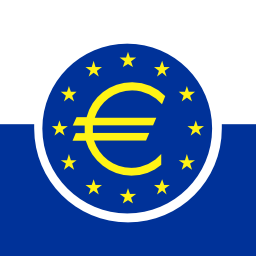How will the CBDC be regulated in Europe?
This article focuses on the regulation of Central Bank Digital Currency in Europe, specifically the European Central Bank's proposed digital euro. It further explores the ECB's role in overseeing its issuance and adherence to relevant regulations.

Grand “Answer”:
The regulation of Central Bank Digital Currency (CBDC) in Europe will be overseen by the European Central Bank (ECB) and other European authorities. The ECB has started exploring the possibility of launching a digital euro, which would be a new form of central bank money [1]. The digital euro aims to complement cash and ensure that consumers continue to have unrestricted access to central bank money in the digital era [1][2]. As part of the regulatory process, the ECB will establish and oversee key aspects of the digital euro, such as its issuance and distribution [1]. Additionally, the ECB will engage with various stakeholders, including the European Parliament, to ensure the digital euro meets the needs of users and adheres to relevant regulations [1][3].
Source
[1]

Central Banks Digital Currencies in EU
Digital Euro and Its Potential Impact
In March 2021, the Euro Summit advocated for an enhanced and innovative digital finance sector, which includes the improvement of payment systems. A central topic was the exploration and potential implementation of a digital euro, a digital form of central bank currency.
This was further emphasized in the Council's recommendation on the economic policy of the euro area for 2022, suggesting that a digital euro could encourage the digitalisation of the European economy, stimulate innovation in retail payments, and solidify the international position of the euro. The digital finance and retail payment strategies, adopted by the Commission in September 2020, supported the development of a digital euro as an auxiliary to physical euro cash.
These strategies were also shared by the European Central Bank's (ECB) retail payment strategy. The ECB released a report on a digital euro in October 2020 and initiated a public consultation phase between October 2020 and January 2021.
In July 2021, the ECB Governing Council launched an investigation phase into a digital euro project.
The primary objective of the digital euro is to maintain the role of public money in an economy that is steadily digitizing, potentially leading to a decrease in cash use.
Despite the present dominance of cash for retail transactions, the emergence of the digital economy might weaken confidence in the currency and the financial system. A digital euro could enhance financial inclusion and mitigate potential disruption from catastrophic events affecting digital private payment services.

CBDC: Legal Considerations
The digital euro is also envisaged to respond to the evolving needs of the digital economy and end-users, providing innovative payment solutions that could aid businesses in the new industrial era. While some needs can be met by private sector solutions, the digital euro could potentially supplement these, particularly regarding pan-European, instant-based payment solutions. An important goal is to strengthen the EU's strategic autonomy and reinforce the euro's global standing.
In light of the rise of alternative payment methods, such as crypto assets and foreign central bank digital currencies, a digital asset could counter potential challenges to the euro's status as the single currency in the EU.
Legally, it's design will need to ensure full compliance with anti-money laundering and counter-terrorism financing rules and meet data protection requirements as stipulated by Union law. It's essential that it operates in full synergy with private initiatives, supports the digitization of the European economy, promotes financial inclusion, and upholds monetary sovereignty. Several policy options are under consideration for the digital euro, including use in various payment scenarios, identity solutions, distribution models, financial inclusion strategies, and potential legal tender status.
Importantly, the Commission is considering the legal implications of granting the digital euro legal tender status and how this might affect the legal status of euro cash. This could lead to a binding EU legislative proposal defining the meaning of legal tender for euro cash, ensuring coherency and safeguarding the role of euro cash as a complement to the digital euro. The legal and regulatory impacts of the digital euro will be considerable, and careful design and consideration will be required to balance its potential benefits and challenges.
Grand Answer: Your AI Partner
Designed to support compliance officers, legal counsels, and other professionals responsible for adhering to regulatory standards, Grand Answer aims to facilitate an efficient and straightforward compliance process.
Grand is live 🎈, check out our GPT4 powered GRC Platform
Reduce your
compliance risks


